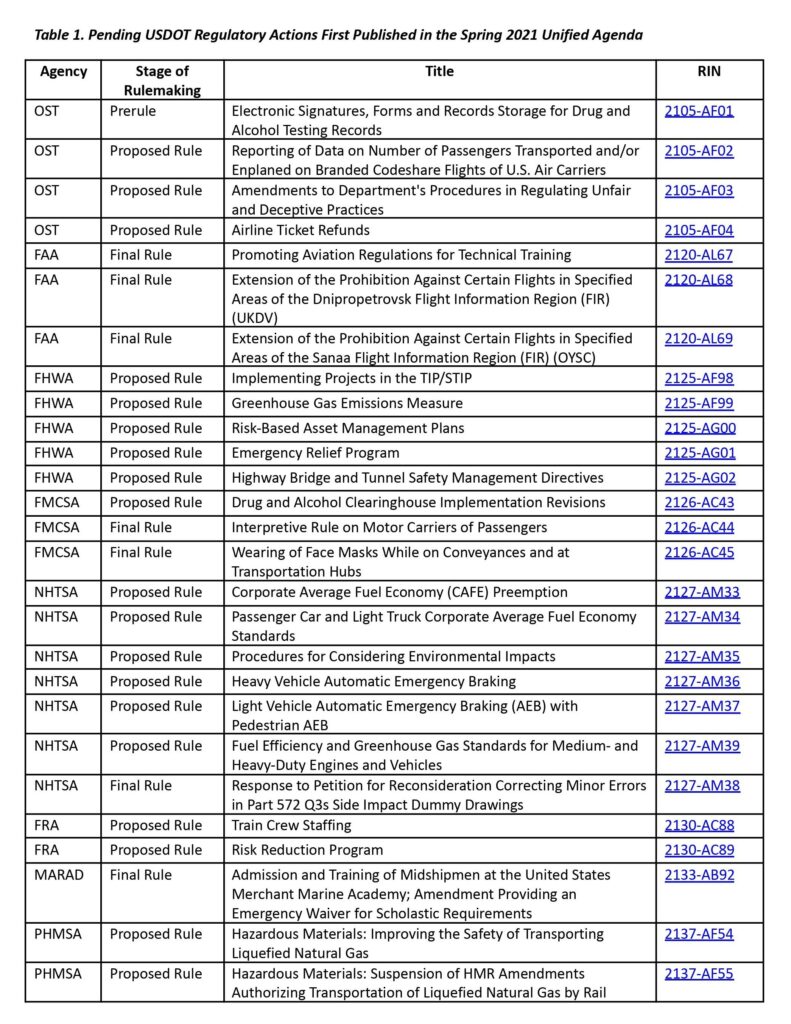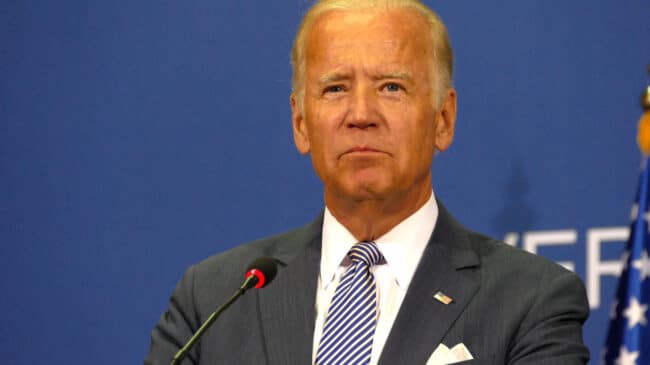In June, the White House Office of Management and Budget’s Office of Information and Regulatory Affairs (OIRA) published the Spring 2021 Unified Agenda of Regulatory and Deregulatory Actions. This biannual publication lists regulations under development by executive branch agencies, including those housed in the U.S. Department of Transportation (USDOT). The Spring 2021 Unified Agenda is the Biden administration’s first, and offers an early look at the new administration’s transportation-related regulatory priorities.
Almost immediately after President Joe Biden was sworn into office in January 2021, as is customary, his Chief of Staff Ron Klain initiated a government-wide “regulatory freeze” that halted pending rulemaking activities initiated during the previous administration in order to allow new political appointees at the various agencies to review pending actions and determine next steps. Numerous rules under development still have undetermined futures. However, we know from the latest Unified Agenda that USDOT under President Biden has at least 27 newly planned regulations. These recently announced rulemaking projects are listed in Table 1 at the end of this post.
Some of these rulemaking projects—especially the National Highway Traffic Safety Administration’s (NHTSA’s) proposed rules on fuel economy standards—are not surprising given President Biden’s publicly stated priorities both on the campaign trail and since he’s taken office. Given his career track record and political impulses, it should also not be shocking that USDOT, under President Biden, will pursue new regulatory burdens on the transportation sector requested by the president’s interest group allies. This should be especially clear now that President Biden has signed Executive Order 14036, which proposes large expansions of federal regulatory power over much of the U.S. economy, including the transportation sector.
The Office of the Secretary of Transportation’s (OST’s) proposed rule to amend USDOT’s procedures on its use of its “unfair and deceptive practices” aviation consumer protection authority would reverse a rule promulgated during the Trump administration. The previous USDOT leadership sought to offer enhanced due process protections to regulated entities such as airlines and ticket agents similar to those protections previously affirmed by courts and the Federal Trade Commission in virtually every non-aviation federal consumer protection context. Reversing this change was a top priority among several aviation consumer groups, who view this nebulous statutory authority as critical to their broad pro-regulatory efforts.
Similarly, the Pipeline and Hazardous Materials Safety Administration’s (PHMSA’s) proposed rules on the transportation of liquefied natural gas (LNG) and the Federal Railroad Administration’s (FRA’s) proposed rule on train crew staffing appear to follow from President Biden’s campaign promises to key Democratic Party constituencies in environmental groups and labor unions.
This pro-regulatory stance will almost certainly raise the ire of regulated entities, and the Biden administration will be confronted by legal realities. While courts afford federal agencies a great deal of deference, it is not unbounded. Some rules, particularly those that deal with safety, are likely to pose problems because the administration’s preferred actions are unsupported by statistical evidence, such as with the FRA’s train crew size and PHMSA’s LNG-by-rail rules. Attempting to shoehorn unrelated environmental, labor, or other non-safety priorities into congressionally mandated safety programs is unlikely to be viewed favorably by the courts. As USDOT’s pro-regulatory agenda ramps up, this is a key area to watch for legal flashpoints.

Notes: RIN = Regulation Identifier Number, a unique alphanumeric code assigned by the Regulatory Information Service Center to each rulemaking project listed in the Unified Agenda. An explanation of Stage of Rulemaking terms can be found on page 8 of the Introduction to the Unified Agenda from the Regulatory Information Service Center.

